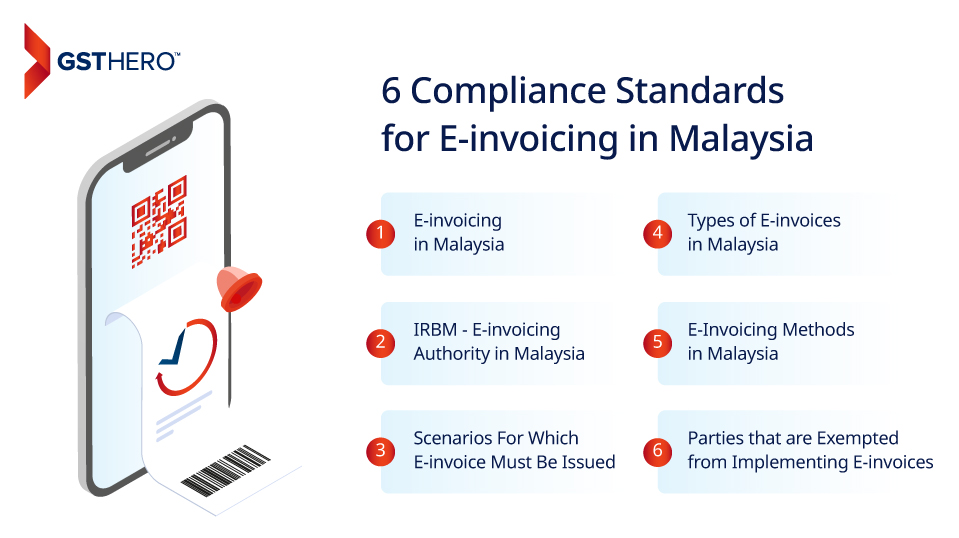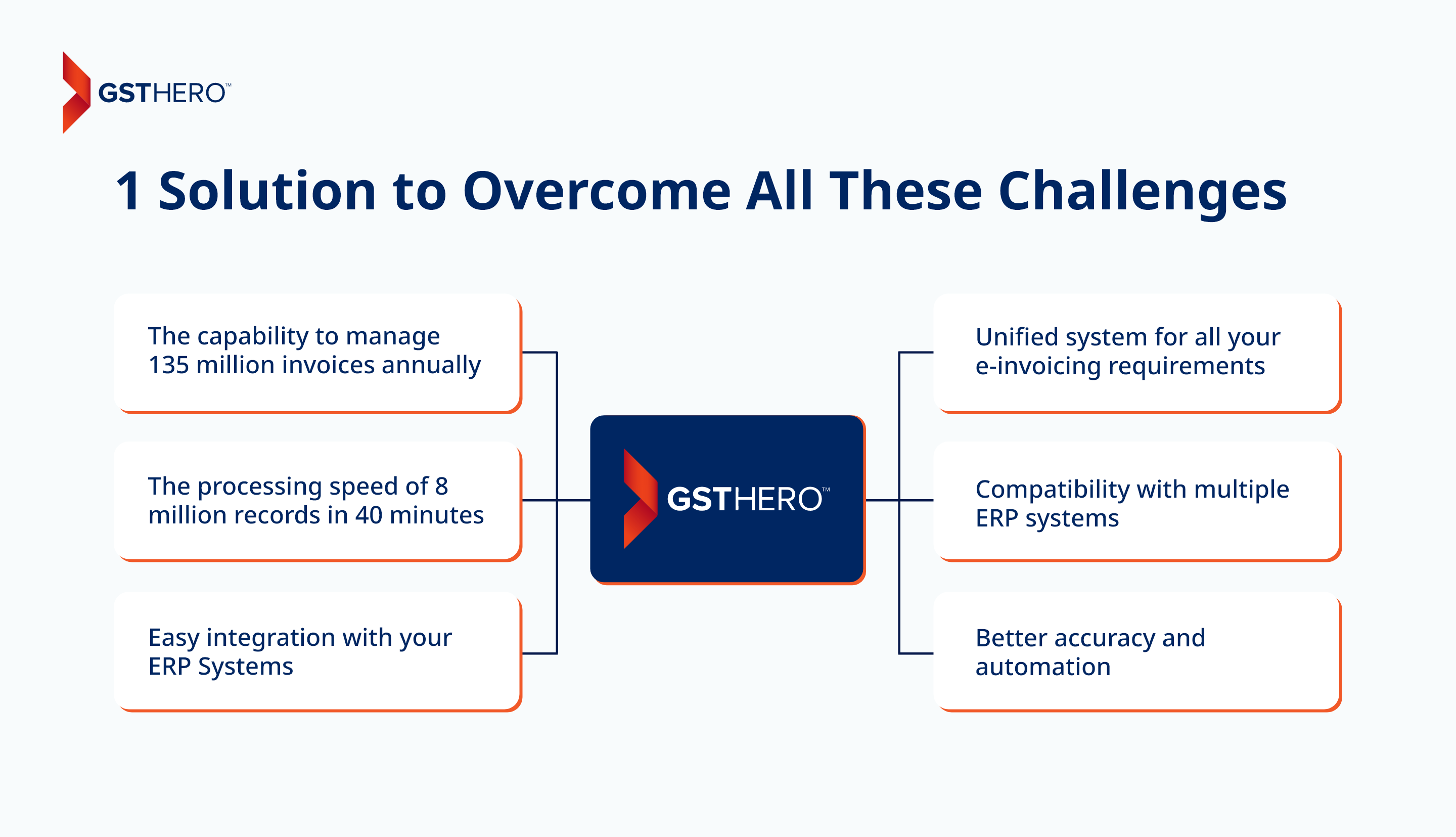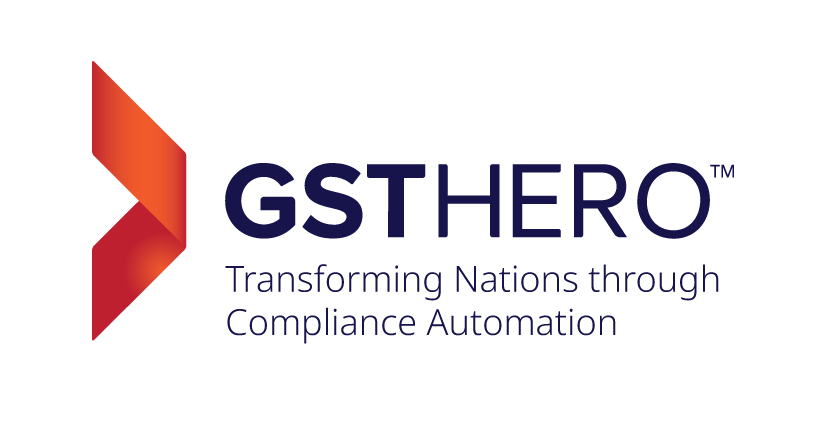Malaysia’s tax office, the Inland Revenue Board of Malaysia (IRBM), made the decision to mandate e-invoicing in March 2023 with a phase-wise implementation plan. The goal of the Ministry of Finance with this move was to digitize and streamline tax administration operations in Malaysia.
However, the Inland Revenue Board of Malaysia (IRBM) postponed the e-invoice implementation date in October 2023, giving businesses time to understand and adopt the concept of e-invoicing into their operations.
As of now, the Malaysian Tax Authority, the Inland Revenue Board of Malaysia/Lembaga Hasil Dalam Negeri Malaysia (LHDN), and the Malaysian Digital Economy Corporation (MDEC) plan to implement the electronic invoicing regulations by August 2024.
Once implemented, the e-invoicing practice will be mandatory for B2B, B2C, and B2G transactions, both domestic and international. This move will not only improve tax administration in Malaysia but also provide several tech-driven + automation benefits.
E-Invoicing Implementation Timeline in Malaysia
To make the transition easier and smoother for all small, medium, and large businesses, the IRBM, MDEC, and Malaysian government are using a phase-wise approach to implement e-invoicing and its regulations.
Refer to the table below to understand the timeline :
Sr. No | Date | Implementation Plan |
1 | 1st August 2024 | Largest Taxpayers - E-invoicing will be in effect for taxpayers with an annual revenue/turnover of more than RM 100 million. |
2 | 1st January 2025 | Standard Taxpayers - E-invoicing will be in effect for taxpayers with an annual revenue/turnover of more than RM 25 million and within RM 100 million. |
3 | 1st July 2025 | All Taxpayers - E-invoicing will be in effect for all taxpayers (small, medium, or large). The specific size of the turnover for e-invoicing will not be a relevant factor after this implementation. |
The Lembaga Hasil Dalam Negeri Malaysia/Inland Revenue Board of Malaysia has determined this phase-wise e-invoicing implementation timeline to help taxpayers better prepare and plan the transition to e-invoicing before the final date.
6 Compliance Standards for E-invoicing in Malaysia
The compliance standards in Malaysia help businesses streamline their business operations while meeting all regulatory IRBM requirements.

E-invoicing in Malaysia
An electronic invoice or e-invoice is a document that is electronically exchanged between a supplier and a buyer through specialized e-invoice software. In Malaysia, the Inland Revenue Board of Malaysia (IRBM) specifies the electronic invoice format.
A valid invoice in Malaysia will contain 53 e-invoice mandatory fields, including seller & buyer details, item description, quantity, price, tax, total amount, payment details, etc.
These fields are grouped into 9 categories :
- Address
- Business Details
- Contact Number
- Invoice Details
- Parties
- Party Details
- Payment Info
- Products / Services
- Unique ID Number
Also, the Malaysian government will use a Continuous Transaction Control (CTC) model for verifying sales invoices via the government’s API.
A Tax Identification Number (TIN) introduced in 2022 will power the use of e-invoicing in Malaysia. Once validated and approved by the Inland Revenue Board (IRB), a serial number will be shared with the supplier via email. With this approach, the Malaysian government aims to adopt a CTC system connected to the Peppol network.
IRBM - E-invoicing Authority in Malaysia
The Inland Revenue Board of Malaysia (IRBM) holds regulatory authority over e-invoicing endeavors in the country. Luckily, the IRBM/Lembaga Hasil Dalam Negeri Malaysia has taken a proactive approach towards incorporating and solidifying e-invoicing in the country by creating a memorandum of understanding (MoU) with the Malaysian Digital Economy Corporation (MDEC).
This unified effort between the IRBM and MEDC will promote a smoother transition to e-invoicing and its success in the country. In July 2023, IRBM also introduced a comprehensive e-invoicing in Malaysia Guideline, outlining a meticulous framework for its adoption across diverse sectors.
Scenarios For Which E-invoice Must Be Issued
Below you will learn about scenarios for which issuing e-invoices will be mandatory as specified by Lembaga Hasil Dalam Negeri Malaysia.
Proof of Income
Issuance of e-invoices is mandatory when your business supplies goods or services to a recipient, enabling accurate tracking of sales and revenue by the government. Additionally, documenting "other transactions" involving earnings may also be necessary, although specific guidelines for such transactions have not been issued by the IRBM/Lembaga Hasil Dalam Negeri Malaysia as of yet.
Proof of Expenses
E-invoices are essential for documenting purchases, expenses, returns, or discounts. When someone buys a product or service from your business, it's imperative to issue an E-invoice to them. It ensures accurate record-keeping of the expenses incurred by the taxpayer. This includes any discounts provided to consumers.
Additionally, if the transaction involves a Malaysian recipient and a foreign seller, the recipient must issue a self-billed invoice to document the expense. Keeping backups of this documentation is vital, as the Malaysian tax department could request it.
Read more article on e-invoicing Malaysia
Types of E-invoices in Malaysia
Malaysia’s e-invoice system will include and mandate the issuance of the following documents for its “e-invoicing Malaysia LHDN” initiative:
Invoices
Invoices are used to document the sales transactions between suppliers and buyers, including self-billed invoices for tracking expenses. They are used to document the product/services offered, the pending amount, and payment terms/conditions.
Credit Notes
Credit notes are documents issued by sellers to rectify or modify the value of previously issued e-invoices without necessitating a refund to the buyer. These adjustments may arise from errors, application of discounts, or product returns, ensuring accurate reflection and accounting of any changes to transaction values.
Specifically, they act as corrective measures for discrepancies in the original transaction value, addressing errors in the invoice, discounts, or returns of goods or services. They serve to reduce the value of the original invoice without requiring a refund to the buyer.
Debit Notes
Debit notes are supplementary documents issued by sellers to maximize the total amount of a previously issued e-invoice, reflecting an increase in the transaction value. This adjustment typically arises from additional costs or charges not initially included in the original invoice.
Debit notes are utilized to record additional costs associated with previously issued e-invoices. They provide clarity on the initial transaction and enable sellers to request supplementary payment from buyers for post-billing expenses.
Refund Notes
Refund notes, also known as refund e-invoices, are official documents issued by sellers to confirm the refund of the buyer's payment, thereby completing the transaction cycle. These invoices play a crucial role in maintaining accurate financial records and facilitating audits.
They are essential whenever money is refunded, ensuring both parties have a record of transaction reversals or adjustments.
Types of Transactions Covered Under Malaysia E-invoice
e-Invoicing in Malaysia applies to all commercial activities in the country including the sale of goods and services. The official mandate by the Inland Revenue Board of Malaysia covers the following types of transactions:
Business-to-Business (B2B)
B2B invoicing through an electronic medium enables hassle-free payments, effortless invoicing, and better operational efficiency for all business-to-business transactions. A well-developed B2B invoicing software can help a business improve productivity and cash flows by automating multiple time-consuming and manual tasks.
Business-to-Customer (B2C)
E-invoicing for B2C business transactions helps simplify invoicing for businesses regularly dealing with individual customers. However, sellers are not obligated to issue e-invoices to customers in the B2C scenario. They can provide a traditional invoice or receipt as well. Be that as it may, after a certain period, sellers are required to aggregate all the issued invoices and receipts to generate a consolidated e-invoice.
Business-to-Government (B2G)
While the flow of e-invoicing in B2G is similar to that of B2B, it offers the benefits of e-invoicing for transactions between businesses and government establishments/organizations.
Important :
E-invoicing in Malaysia applies to all taxpayers/individuals/legal entities conducting a commercial activity, including but not limited to :
- Association
- Body of Persons
- Branch
- Business Trust
- Co-Operative Societies
- Corporations
- Limited Liability Partnership
- Partnership
- Property Trust Fund
- Property Trust
- Real Estate Investment Trust
- Representative Office and Regional Office
- Trust Body
- Unit Trust
E-Invoicing Methods in Malaysia
There are 3 invoicing methods in Malaysia to report/transmit tax invoices to the IRBM depending on the requirements of a business such as volume and customization.
- The MyInvois Portal
- Application Programming Interface (API)
- Peppol Service Providers
The MyInvois Portal
The MyInvois Portal is a web-based platform provided and hosted by IRBM/Lembaga Hasil Dalam Negeri Malaysia (LHDN). It is a free portal for uploading invoices and a perfect option when connecting to APIs for e-invoice is an obstacle. However, it is only suitable for small and medium-sized businesses since it can process limited volumes of data. Large enterprises with low invoice volume requirements might also find it useful.
This portal includes prepared templates for e-invoicing, preventing the need for additional tools or invoice software. Malaysia’s IRB has also made ERP integration with MyInvois possible and easy to do, making it a widely usable tool for taxpayers.
The MyInvois Portal is compatible with both Web and Mobile Interfaces.
To manually upload an invoice to MyInvois, follow these steps:
- Visit the MyInvois website and log in to your account.
- Click on the “Invoices” tab.
- Select “Add New Invoice”.
- Choose the “Manual Upload” option.
- Browse for the invoice file you wish to upload.
- Click the “Upload” button.
Application Programming Interface (API)
When the requirement includes large volumes of invoices, the API proves to be a more suitable option for e-invoice transmission. It allows direct transmission between the MyInvois System and the system used by taxpayers. API for e-invoicing in Malaysia is a great option for large enterprises with higher invoice volume and integration needs.
Customization and technology investment are required for using API in Extensible Markup Language (XML) or JavaScript Object Notation (JSON format).
With API Integration, taxpayers can generate e-invoices using their ERP systems in real time, and prevent the need for manual intervention when delivering them to the IRB database.
The API integration method offers the advantage of the real-time generation of e-invoices within the ERP system, directly delivering them to the IRB database.
Direct integration enables close to real-time synchronization of data between the ERP and the MyInvois portal, making these e-invoices instantly available for the validation and approval process.
Peppol Service Providers
Using API integration through a PEPPOL service provider, Malaysia’s and cross-border suppliers can transmit e-invoices to LHDNM. It would enable them to benefit from the interoperability facilitated by PEPPOL.
For API
During the E-invoice file validation process, three types of validation rules are implemented :
- Syntax validation
- Schema validation
- Business Rule Validation
These validations are crafted to manage text and character data according to the UTF-8-character encoding standard.
Following validation, buyers have a 72-hour window to request rejection, while taxpayers can request cancellation within 72 hours of receiving API notification.
Parties that are Exempted from Implementing E-invoices
The latest guidelines by IRBM specify the parties that are exempted from issuing e-invoices :
- Ruler and Ruling Chief
- Former Ruler and Ruling Chief
- Consort of a Ruler of a State having the title of Raja Perempuan, Sultanah, Tengku Ampuan, Raja
- Permaisuri, Tengku Permaisuri or Permaisuri
- Consort of a Former Ruler of a State previously having the title of Raja Perempuan, Sultanah, Tengku
- Ampuan, Raja Permaisuri, Tengku Permaisuri or Permaisuri
- Government
- State Government and State Authority
- Government Authority
- Local Authority
- Statutory Authority and Statutory Body
- Facilities provided by the above Government or Authority (For example, hospitals, clinics, or multipurpose halls)
- Consular Offices, Diplomatic Officers, Consular Officers, and Consular Employees
Additionally, e-invoices (including self-billed E-invoices) are not required for the types of income or expense mentioned below :
- Employment Income
- Pension
- Alimony
- Zakat
- Scholarship
These exemption lists are subject to review and update by the IRB as and when deemed necessary.
Additionally, certain regulations apply to these exemptions, which you can learn about below -
- Suppliers providing goods or services to those mentioned in the lists above must issue e-invoices according to the specified timeline.
- For transactions involving numbers 1, 2, 3, 4, and 13 individuals/parties from the list, suppliers may replace buyer details as per guidelines.
- For transactions involving numbers 7, 8, 9, 10, 11, and 12 individuals/parties from the list, suppliers are allowed to use a general Tax Identification Number (TIN) in the Buyer’s TIN field as per guidelines.
- The exemptions in the list only apply to individuals/parties, entities owned by them such as companies or partnerships are subject to e-invoicing regulations.
- Regardless of exemptions, all listed individuals/parties are encouraged to implement e-invoicing to support the Malaysian government's digital initiatives.
Conclusion
The journey towards e-invoicing implementation in Malaysia has been marked by careful planning and phased execution, with the ultimate goal of digitizing and streamlining tax administration operations.
This mandate will encompass various transaction types, including B2B, B2C, and B2G, aiming to enhance tax compliance and drive technological advancement in business processes. With detailed compliance standards, exemptions, and implementation methods outlined, businesses are encouraged to embrace e-invoicing as a pivotal step toward efficiency, accuracy, and compliance in the Malaysian business landscape.
Why Choose GST Hero as Your E-invoicing Solution Provider?
GST Hero is a one-stop e-invoicing solution for Malaysia, offering benefits like :

- The capability to manage 135 million invoices annually
- The processing speed of 8 million records in 40 minutes
- Easy integration with your ERP Systems
- Better accuracy and automation
- Compatibility with multiple ERP systems
- Unified system for all your e-invoicing requirements
The key features of GSTHero e-invoicing include-Individual Support to Prevent Technological Obstacles
You get support from a certified expert who will provide step-by-step guidance for e-invoicing in Malaysia through GST Hero and help you meet all compliance standards.
Easy ERP Integration
GSTHero facilitates quick integration with multiple ERPs like SAP, Tally, Oracle, Microsoft, and Custom ERPs to ensure compliance faster.
Bulk Generation
GST Hero has a processing speed of 8 million records in 40 minutes, helping you generate bulk invoices within minutes.
Tested Automation Solution
With GST Hero’s automation, you can expect better speed (operational efficiency), accuracy, and prevention of all manual errors.
Faster Generation and Cancellation
You can rapidly generate and cancel E-invoices with a single click.
100% Compliance with IRBM Regulations
The e-invoicing solutions are 100% compliant with IRBM’s regulations for e-invoicing in Malaysia.
GSTHero is a reliable partner in your journey towards effortless e-invoicing and compliance in Malaysia.

